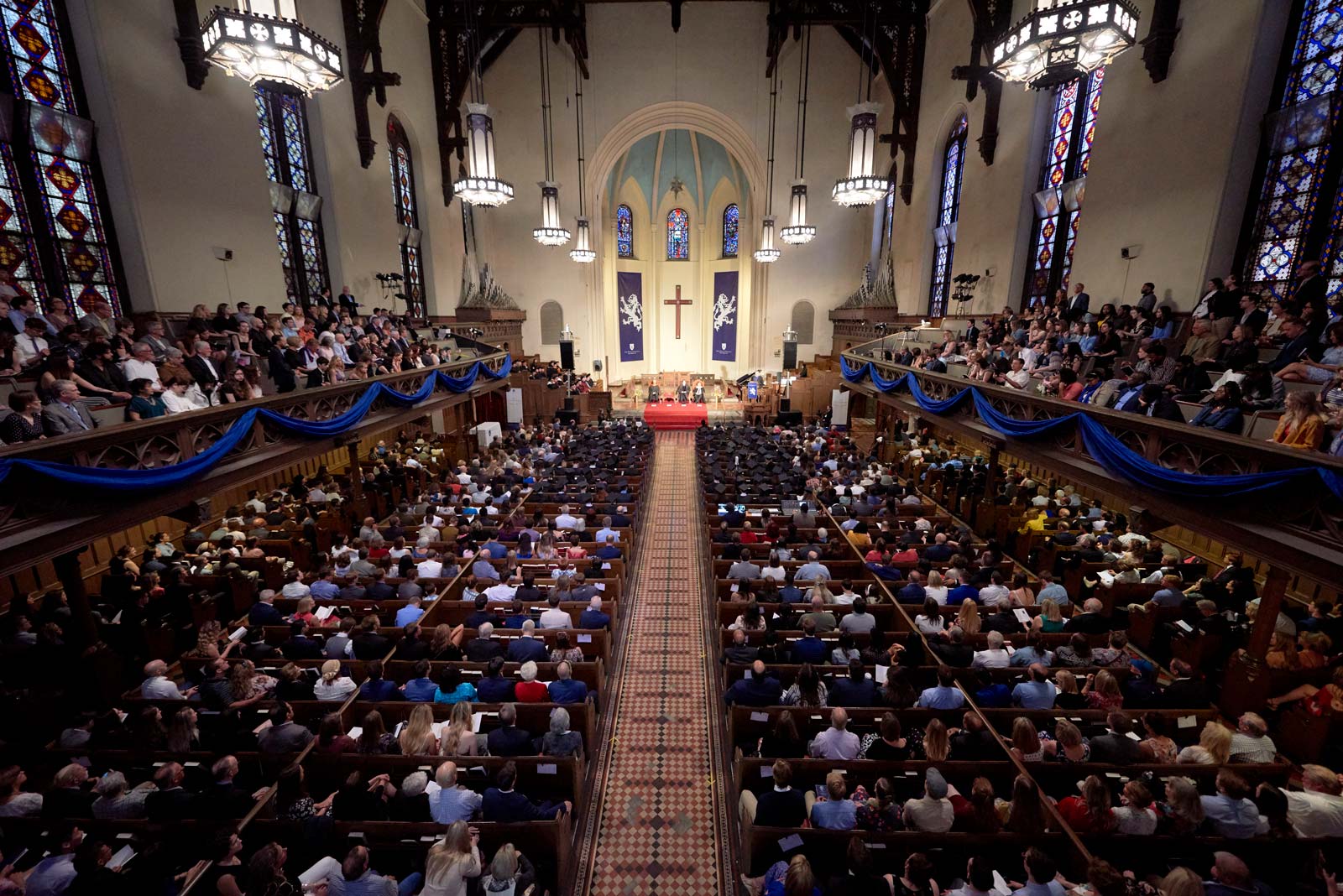
Unity in Diversity
Overview
Many forms of diversity—including race, socio-economic background, national origin, sex, age, ability/disability, and marital status—factor significantly into how one experiences, and benefits from, higher education. Beginning with the Christian conviction that every person is created in God’s image, a primary concern of God’s people is the right treatment of all humanity, especially the vulnerable. Through programming and coursework, The King’s College seeks to cultivate an environment where students, faculty, and staff approach one another’s differences with charity and understanding. As people afflicted by sin (Romans 3:23: “All have sinned and fall short of the glory of God”), we recognize that our individual and corporate efforts to cultivate unity in diversity will at times fail. Even so, we aim to be open to correction, ready to forgive, and eager to grow in love and knowledge.
Commitments | Programs | Coursework | Student Resources | In the Public Square
Commitments
What does the Bible say about different forms of diversity? In a community filled with cultural and ideological differences, how do we establish a climate of mutual respect? Our “Biblical-Theological Commitment to Unity in Diversity” and “Statement on Academic Freedom” describe how The King’s College administration, staff, and faculty think address these questions. Both statements are aspirational in nature. If and when members of the King’s community find themselves or others falling short of these ideals, they are expected to hold each other accountable, confronting failures out of genuine care for one another in a spirit of truth and grace.
As a Christian college, and building upon the multi-ethnic authorship of the four-gospel tradition, we believe we have a responsibility to cultivate the diverse cultures and perspectives within the Christian faith, while also critically engaging them. “We believe that diversity, rightly pursued, employs all members in seeking the common good of the community. . . . Beginning in creation to the founding of the Church, diversity amongst image bearers is part and parcel of God’s project for forming His people—from the Egyptians who joined Israel in the exodus to the Gentiles grafted into the New Covenant.”
As a community, we are committed to practicing repentance, deference, correction, civility, and openness to struggle in order to take seriously the biblical commitments to unity in diversity.
Read Full StatementThe King’s College Statement on Academic Freedom and Biblical-Theological Commitment to Unity in Diversity complement each other. The Statement on Academic Freedom “guarantees all members of The King’s College community the broadest possible latitude to speak, write, listen, challenge, and learn.” The ability to openly and courageously debate difficult topics in history and society, with civility and mutual respect, is a key outcome of a liberal arts education.
The statement continues, “All members of The King’s College community share in the responsibility for maintaining a climate of mutual respect. Within this framework, we do not wish to limit discussion of ideas, however offensive or disagreeable those ideas may be to some members of our community.”
Speech may be restricted for reasons of confidentiality, privacy, or a genuine threat, and the free expression afforded to faculty and staff operates within the bounds of the Christian faith (all full-time College employees commit to creedal Christianity via the Statement of Faith).
Read Full StatementAs students enter King’s, they sign the Honor Statement, affirming their commitment to honor the God-given dignity of every member of the King’s community, to discuss and debate ideas without vilifying or belittling others, to notice the ways differences enrich our community, and strive to maintain an environment of mutual respect.
Every student is honor-bound to confront any other student who breaches the Honor Code in a spirit of truth and grace. If a one-on-one confrontation is not successful, students elevate the concern to a staff member or a member of House leadership.
Read Full Statement
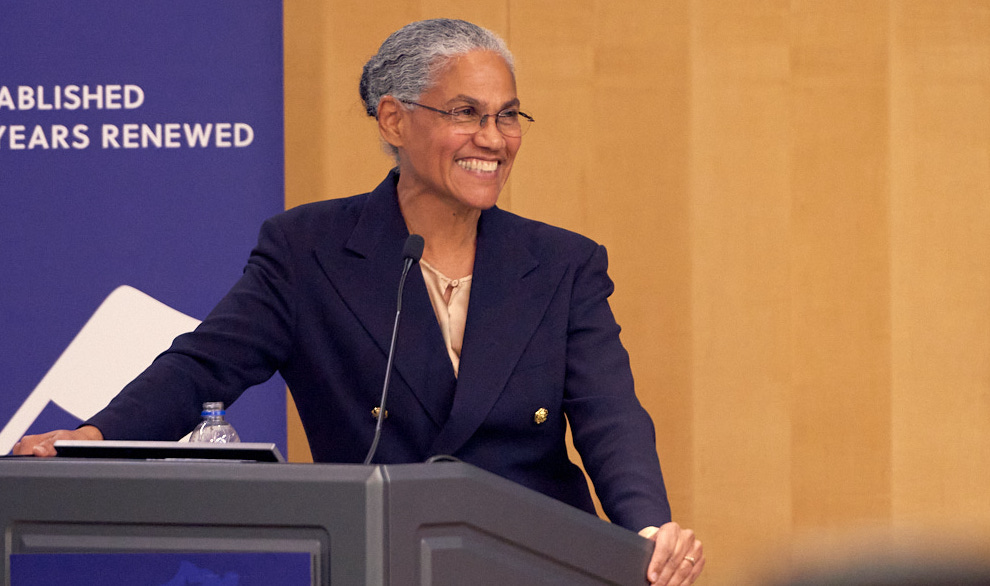
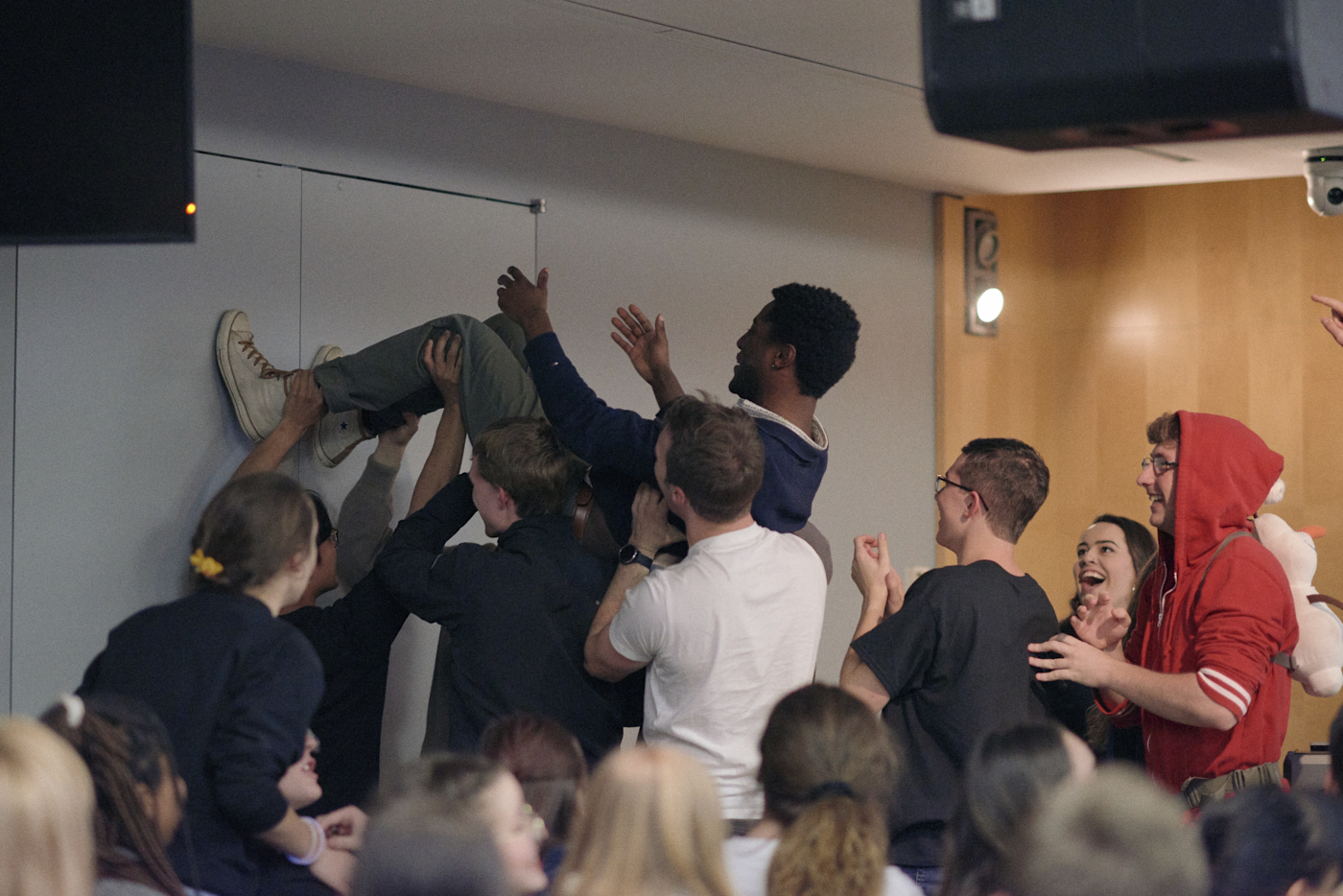


Programs on Campus
New Student Orientation
All new students are required to participate in a workshop on civility and respect to learn expectations for civil discourse, respect, and diversity in the King’s community. New Student Orientation also includes a session about living in a community of honor, with discussions separated by House.
Difficult Discussions Series
Each year, The King’s College hosts at least two lunchtime panels in its “Difficult Discussions” series. Typically, one topic relates to race (past topics include Systemic Racism, Public Monuments and Personal Failings, Reflections & Remorse: How Should America Respond to its History of Slavery?, and A House Still Divided? The Unfinished Business of the Civil Rights Movement), and the other on sexuality (past topics include Pornography, Permanent Virgin?, and Premarital Sex Revisited).
Annual Black History Month Lectures
The King’s College hosts a Black History Month lecture each February. Previous presenters included James Roberson, Dr. Eugene F. Rivers III, Harlan Redmond, David M. Bailey, Dr. Jacqueline C. Rivers, and Dr. Lucas Morel.
Coursework
The King’s College mission is to transform society through our “commitment to the truths of Christianity and a biblical worldview.” We affirm that God has made all human beings in His image and is gathering His people from every tribe, tongue, and nation. From this foundation, the coursework at King’s guides students in pursuing historical answers to the big questions and drawing reasoned conclusions about how to pursue human flourishing in our present and future—politically, philosophically, and economically.
We have listed individual courses that directly address issues of race or racial injustice.
Courses required for all students are labelled as core courses. All other courses are electives.
This course is the first half of a two-semester sequence that unfolds the history of the American regime through a careful study of key public documents, speeches, and literary works. Special attention is given to the colonial antecedents of the American republic, the principles and practice of the founding generation, and the controversies among the second and third generations of American statesmen over slavery and democratization and the reconceptualization of the American regime that supported them.
This course is the second half of a two-semester sequence that unfolds the history of the American regime through a careful study of key public documents, speeches, and literary works. Special attention is given to the rise of Pragmatism, Pluralism, Progressivism, the internationalization of American politics, the growth of the American state, the question of American supremacy or decline, and debates over the trajectory of the American regime in the twenty-first century.
This course focuses on African Americans’ unique theological interpretations and the central role of the exodus in their understanding of the Bible. It traces the development of what is arguably the central institution in the Black community in the United States, the Black Church, from slavery through emancipation, Jim Crow, and the Civil Rights Movement to the first decade of the twenty-first century. The course examines key issues in the theology, history and sociology of the Black Church.
This is an advanced course in constitutional law that examines the constitutional basis for civil rights and civil liberties and the history of the Civil Rights Movement. The Civil Rights Movement emerged in response to a regrettably long history of race-based discrimination in the United States. One peculiarity of American history is that both critics and defenders of slavery and segregation cited the Christian Bible in support of their views. The course also considers more recent arguments for constitutional rights, some of them highly controversial.
A survey of historical and contemporary readings on America’s race history from the Jim Crow era to the present. The course will introduce students to a range of perspectives on the political, economic, and religious contributions to challenges of race that surfaced during the 2020 Black Lives Matter protests following the murder of George Floyd. Students are expected to engage in careful and close readings of primary texts by leading scholars in the national discourse.
This course will examine and evaluate the political thought of Abraham Lincoln in dialogue with his key contemporaries, especially John Calhoun, Stephen Douglas, and Frederick Douglass, and consider its place in pursuing justice in our own day.
This course explores the history of slavery and its philosophical underpinnings in the Western world, looking primarily at North America and the Caribbean in the eighteenth and nineteenth centuries. The course also considers different forms of opposition to slavery, including slave revolts and abolitionist movements, while seeking to explain why slavery persisted for so long in the United States. The course concludes by attempting to identify some important consequences of slavery after its abolition.
Student Resources
The Table is a community of Black and Hispanic students who meet to support the minority populations at King’s and to engage the broader community in discussion of multicultural issues. From dinners to movie nights to a check-in with Esther Jhun, Director of Counseling Services, Table events are designed to create a sense of belonging and shared space of understanding. Campus-wide events, from public policy discussions to the annual Starlight Art Night, focus on celebrating diversity and engaging discussion on multicultural issues.
Andrea Lopez, Director of Student Services, serves as staff advisor to The Table. Contact: thetable@tkc.edu.
Student OrganizationsThe Bridge supports the AAPI population at King’s and engages the community with multicultural issues while advancing the mission of The King’s College. We seek to promote ethnic pride and model unity in diversity in the execution of its purpose. Contact thebridge@tkc.edu.
Student OrganizationssInternational students can contact the Primary Designated School Official (PDSO) or another Designated School Official (DSO) for questions or concerns regarding their I-20 or F-1 visa or for general questions on acclimating to life in NYC. These staff members work in two key departments of the College: the Registrar’s Office, and Academic Advising.
Virtual Student CenterStudent supports such as counseling, House Advisors, and the Student Success office (which assists with tutoring, coaching, advising, and academic accommodations) are open to all students. See the Virtual Student Center to access all student resources. To view the racial/ethnic composition of the student body, see IPEDS data here. You can browse the list of employees at King’s in the staff directory or the faculty directory.
Virtual Student CenterIn the Public Square
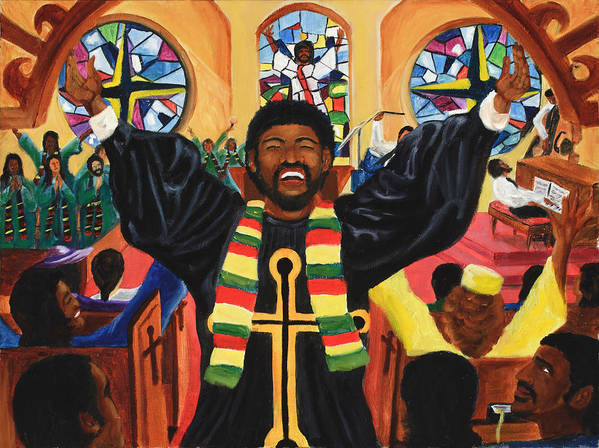
Center for the Study of Christianity and the Black Experience
Through teaching, research, scholarly writing, and public engagement, the Center seeks to increase our knowledge of Black Christian communities’ influence on the faith around the globe, with critical attention to the ancient, modern, and future roles of the Black Church, and its contributions to worldwide Christianity, including the civic dimensions of its work.
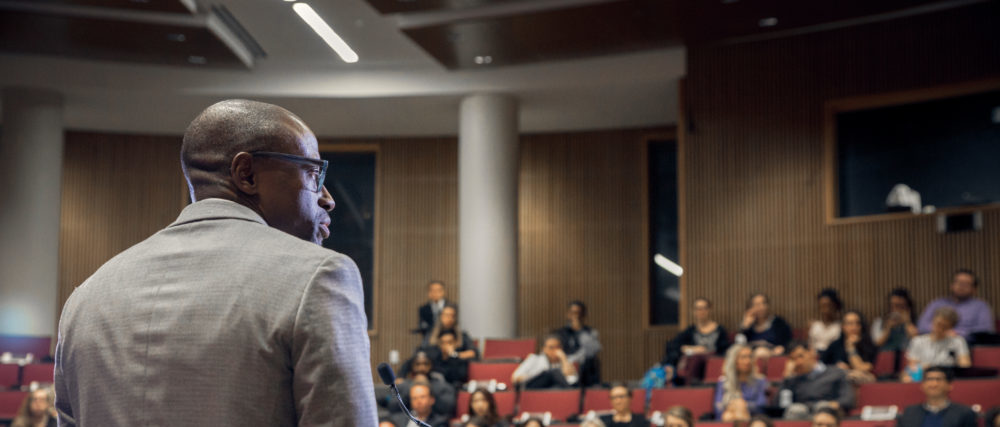
Center for the Study of Human Flourishing
The mission of the Center is to examine critically and promote the moral, social, political, economic, and aesthetic practices that lead to human flourishing and advance the common good. Center activities draw upon cross-disciplinary resources that explore the intersections of moral virtue and public life.
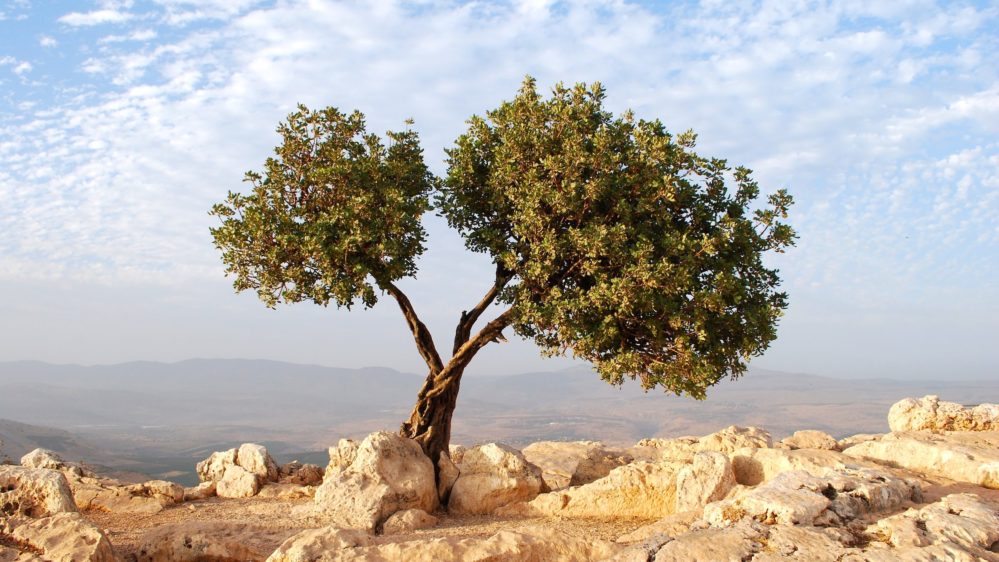
Center for Hebraic Thought
In partnership with the Philos Project, The Center for Hebraic Thought is a hub and community for research, resources, and conversations about biblical literacy and the intellectual world of the Bible.
Select Writing and Speaking
Through programming and coursework, The King’s College seeks to cultivate an environment where students, faculty, and staff approach one another’s differences with charity and understanding, and in faculty are regularly speaking and writing on adjacent ideas.




